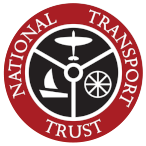National Transport Trust
DISPOSAL OF PERSONAL ASSETS
1. Introduction
The Council of the Railway & Canal Historical Society recently published guidance to its members on the safe disposal of transport heritage-related personal assets, in the event of that becoming necessary. The National Transport Trust Council considers that this advice may also be of use to Trust members and is pleased to publish it, acknowledging the role of the R&CHS.
The Trust Council will welcome the views of members on this guidance - which should be sent to the Chairman [This email address is being protected from spambots. You need JavaScript enabled to view it.] or Transport Digest Magazine Editor [This email address is being protected from spambots. You need JavaScript enabled to view it.] or by post to Head Office.
2. General considerations
2.1 The best way of all to preserve your life’s researches is to write them up for publication. The Trust’s Magazine Transport Digest is one outlet at your disposal. If your career has given you practical experience of transport, consider writing down what you can recall, bearing in mind how much things have changed in most professions in recent years.
2.2 If you are thinking of giving your material to an organisation, contact it first to find out whether – and if so how – it could accept the gift. Links on the Trust’s website give some idea of appropriate organisations. Bear in mind, though, that organisations do not necessarily have the facilities to accept everything they are offered and that transport, sorting to eliminate duplication, cataloguing and (if appropriate) providing archival-quality storage take effort and money, so do not be offended if a gift is refused or can be accepted only selectively, or on condition that unwanted material can be sold or otherwise disposed of. Likewise, organisations cannot usually agree to special conditions on location or access, since custodians are unable to commit their successors decades hence.
2.3 You are advised to take legal advice if bequeathing material by will to ensure your intentions can be met.
2.4 If material (including photographs) is your own work and thus your own copyright, you should specify in writing that you transfer this right to the recipient (if that is your intention). If material is not by you, then this too should be made clear to avoid inadvertent infringement of copyright.
2.5 If you have digitised material, remember the programs need to be available to read it.
3. Personal papers
3.1 Unsorted and random research notes are probably of no use to anyone.
3.2 Ordered collections of material that can be comprehended by anyone looking at them may be of interest. Examples might include clear transcripts of original source material; or typescripts of published books or articles which contain data additional to that which appeared in the published version. In all cases, the advice given in 2.2 above to contact potential recipients first stands.
4. Photographs
4.1 There are a number of organisations interested in the preservation of historic transport photographs. You will need to establish which formats (negatives, prints, transparencies, digital) would be acceptable.
4.2 If they are to be of use to future researchers, photographs need to have their subject and date identified. This should make it easier and quicker for anyone accepting them to make them available.
5. Books
5.1 There are a number of libraries specialising in transport history. However, you should remember that they are likely to have comprehensive collections already and to be selective over what books, magazines or other printed material they might want to add.
5.2 Remember that selling a book collection – especially if done through specialist hands – is another way of making its content available to future researchers
5.3 Should you own books with particular provenance, signatures or significant annotation, it would be useful to call attention to this.
5.4 You could, if you wish, direct that the proceeds from the sale of a collection be given to a particular organisation.
6. Archival materials and artefacts
6.1 If you have original archival material or artefacts you may like to consider giving the items to an appropriate public archive or museum. Again, though, you should bear in mind that such bodies are unlikely to accept material which duplicates what they already hold.
6.2 There are national accreditation schemes for both museums and archives which can assure you that proper standards are maintained by potential recipients.
6.3 For railway artefacts at least, there are reputable specialist auction houses operating nationally which can provide valuation and selling services.
6.4 Should you already have placed material on any form of loan to an organisation, do not forget to make provision for its long-term ownership. (Most museums etc will no longer accept loans other than in exceptional circumstances because of the problems of wear & tear, damage and the inheritance of ownership.)
7. Cash
7.1 There may be beneficial tax arrangements in bequeathing cash or other items to a registered charity, about which you should take professional advice.
7.2 A suitable form of words should you wish to leave money to this Trust in your will would be:
I give to the National Transport Trust, the registered office of which is at 26 Station Approach, Hinchley Wood, Esher, Surrey, KT10 0SR
[insert amount], and the receipt of the Treasurer or other proper officer of the said Trust shall be a complete discharge to my Executors.
Download a copy of this document
